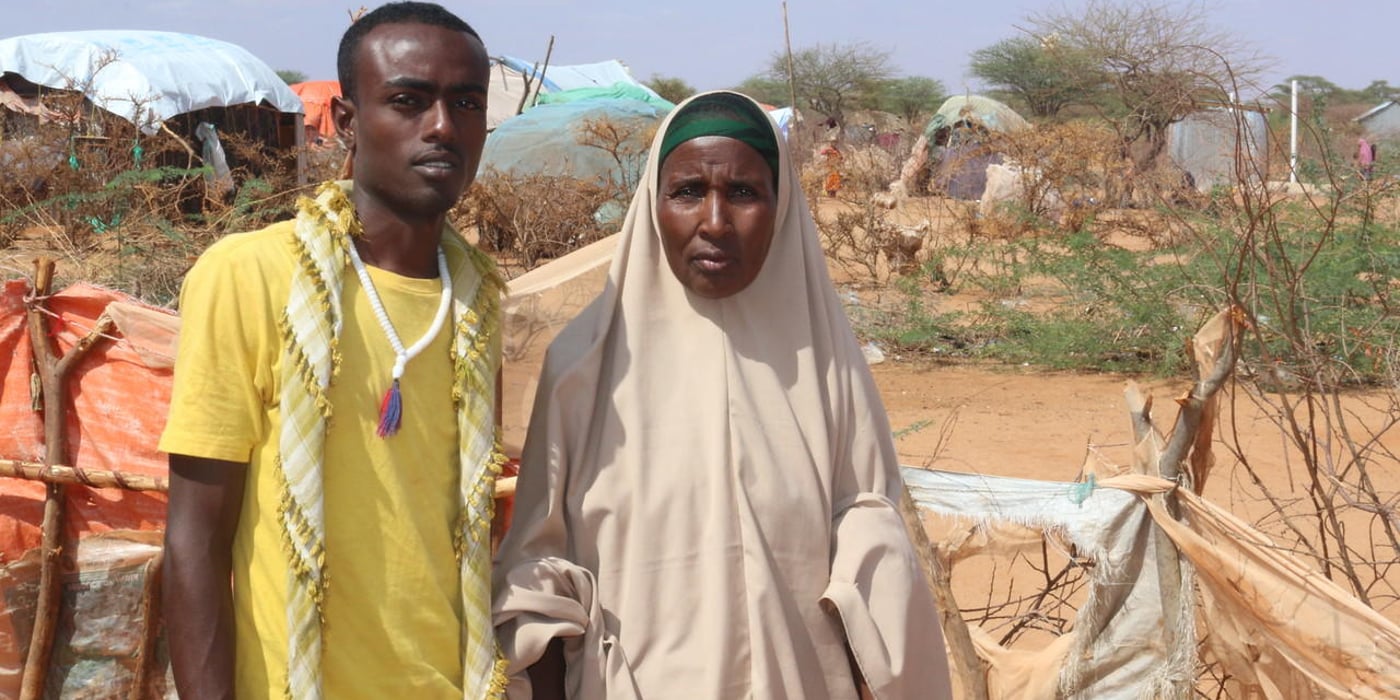
After spending 14 years living as a refugee in Hagadera, the decision to return to Somalia together with her seven children was a difficult one. Although she left out of her own will, life was becoming increasingly uncertain and challenging.
“My son was arrested twice during night patrols by the police, they suspected him of being a member of Al-Shabaab”, says Amina.
Saved enough money to go
She saved some money from her son’s work at the ice factory and sold half her monthly food ration to generate enough money to travel back to Somalia. Upon return to Somalia, she settled in Balad-Hawa, where there was a high militia presence and she did not feel safe. She moved further north to Qansahley settlement for internally displaced people in Dollow.
In 2002, Amina fled Somalia together with her nine children to escape clan conflict. They crossed the border into Kenya and arrived in Dadaab refugee camp. After her husband died, Amina has raised her children and supported her family all by herself. She lost two of her children while in Dadaab.
“Dadaab was a good place, we had free food and water. When I first came to Dollow, I struggled to find support and establish a network. Now, my living conditions in Dollow are better because I feel safer and I am able to look for work opportunities. I am a traditional birth attendant, and I am helping pregnant women giving birth. Our biggest challenge is clean water. The river water is muddy. We would request humanitarian organisations to help us get clean water,” says Amina.
Supporting returning Somalis
Supported by the UK Department for International Development (DfID), NRC is helping returnees to integrate locally. A Housing, Land and property (HLP) cross-border programme has been established providing information and cross-border referrals to enable returnees reclaim their assets upon return. Together with other returnees in Dollow, Amina is a participant in NRC’s cash-for-work initiative which is using drip irrigation methods to grow crops within communal farms in Qansahley.
The voluntary returns programme has assisted 30,134 Somali refugees from Dadaab refugee camp. Between May and September 2016, The Protection and Return Monitoring Network (PRMN) has documented an average of 12,054 people crossing the Kenya-Somalia border into Somalia. The most common reasons for cross-border movement has been search of better social relations, economic opportunity and permanently resettling in Somalia. However, as already highlighted by humanitarian agencies, internal displacement coupled with increasing number of returns from Kenya, Ethiopia and Yemen and limited humanitarian funding will result in a situation where people resort to desperate measures in order to survive.
“I am not going back”
Fortunately, Amina has made up her mind. She has resolved to rebuild her life in Dollow by making use of the available resources and support that she can get. When she is not helping women welcoming the little bundles of joy, she works in the farms with her son Dahir, whose wife and two children are still in Kenya waiting for an opportunity to travel to Somalia with support from the UNHCR-led Voluntary Repatriation Programme (VolReP).
“I am not going back. Neither am I going cross into Ethiopia to register as a refugee again. I want to tell the people in Dadaab that they should come back and freely enjoy the feeling of safety and doing what they want to do in life”, says Amina.
Dadaab’s Broken Promise
A report released 10 October by NRC criticizes the returns process from Dadaab camp in Kenya to Somalia, as no longer being voluntary, safe or dignified.
The report, titled Dadaab’s Broken Promise, says that the decision by the Government of Kenya in May to close the Dadaab refugee camps in November has led to a situation where the voluntary returns process does not meet international standards, and breaks the agreement that Somalis would be assisted to return home safely and voluntarily.


